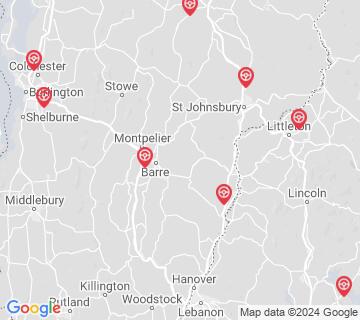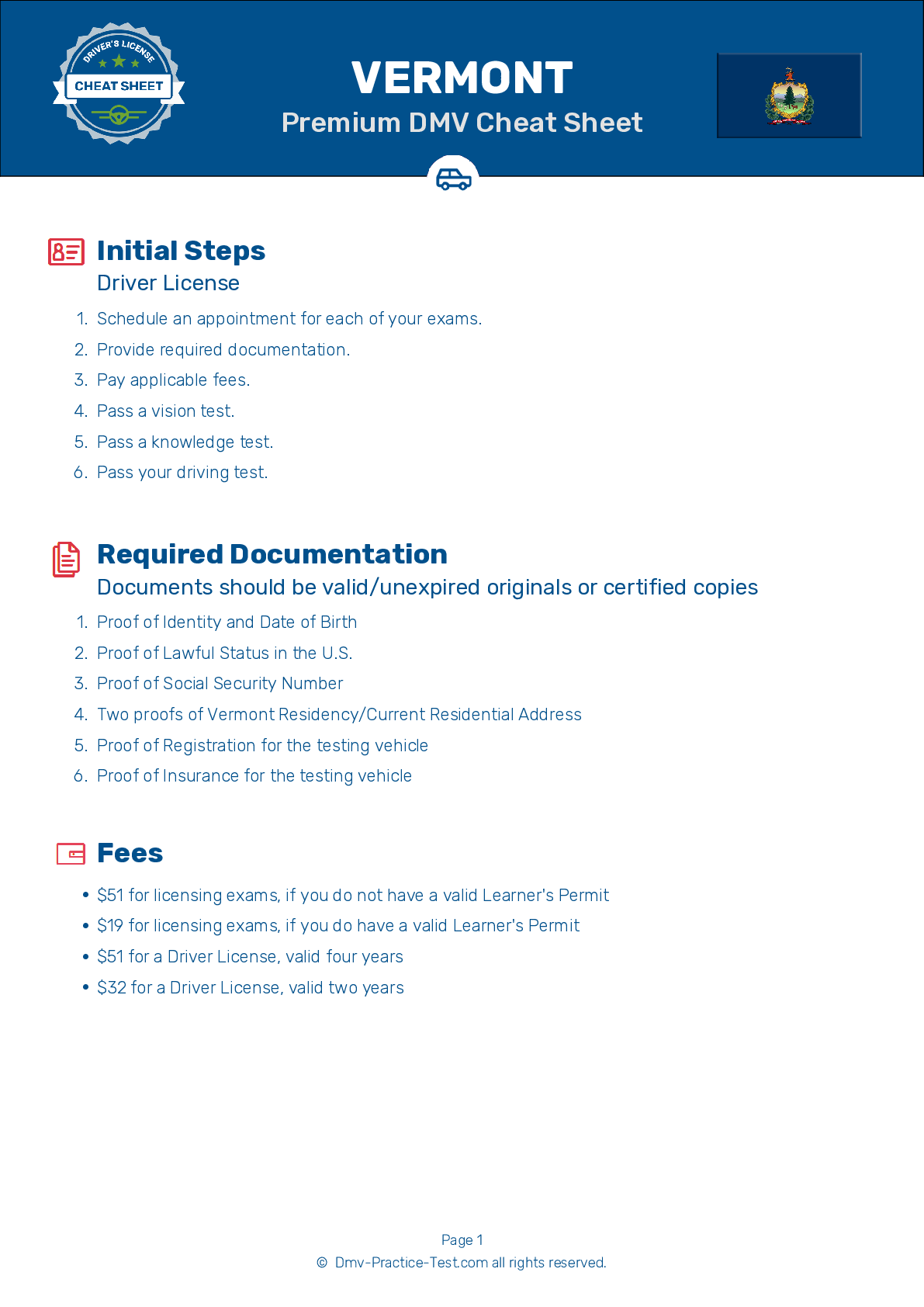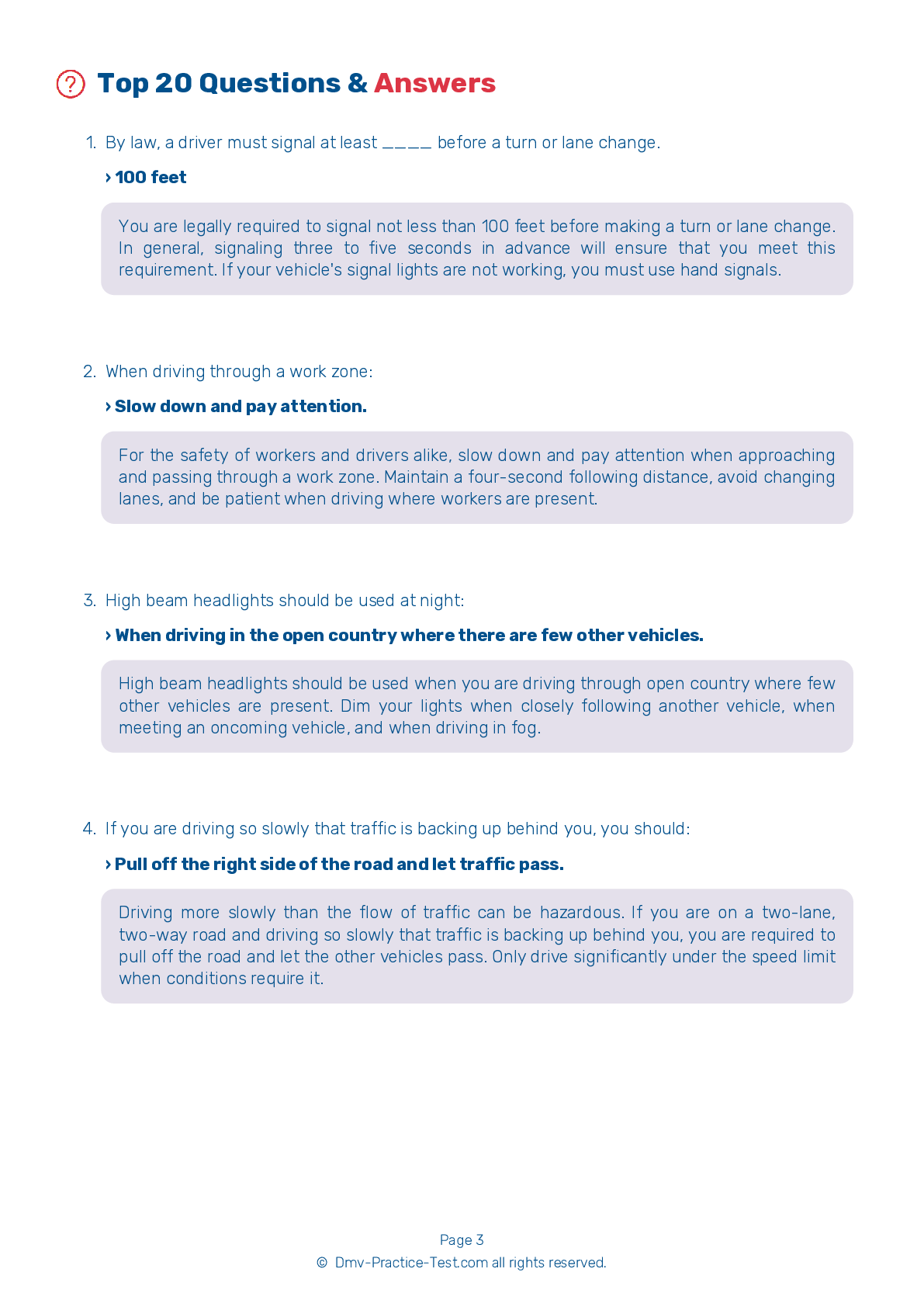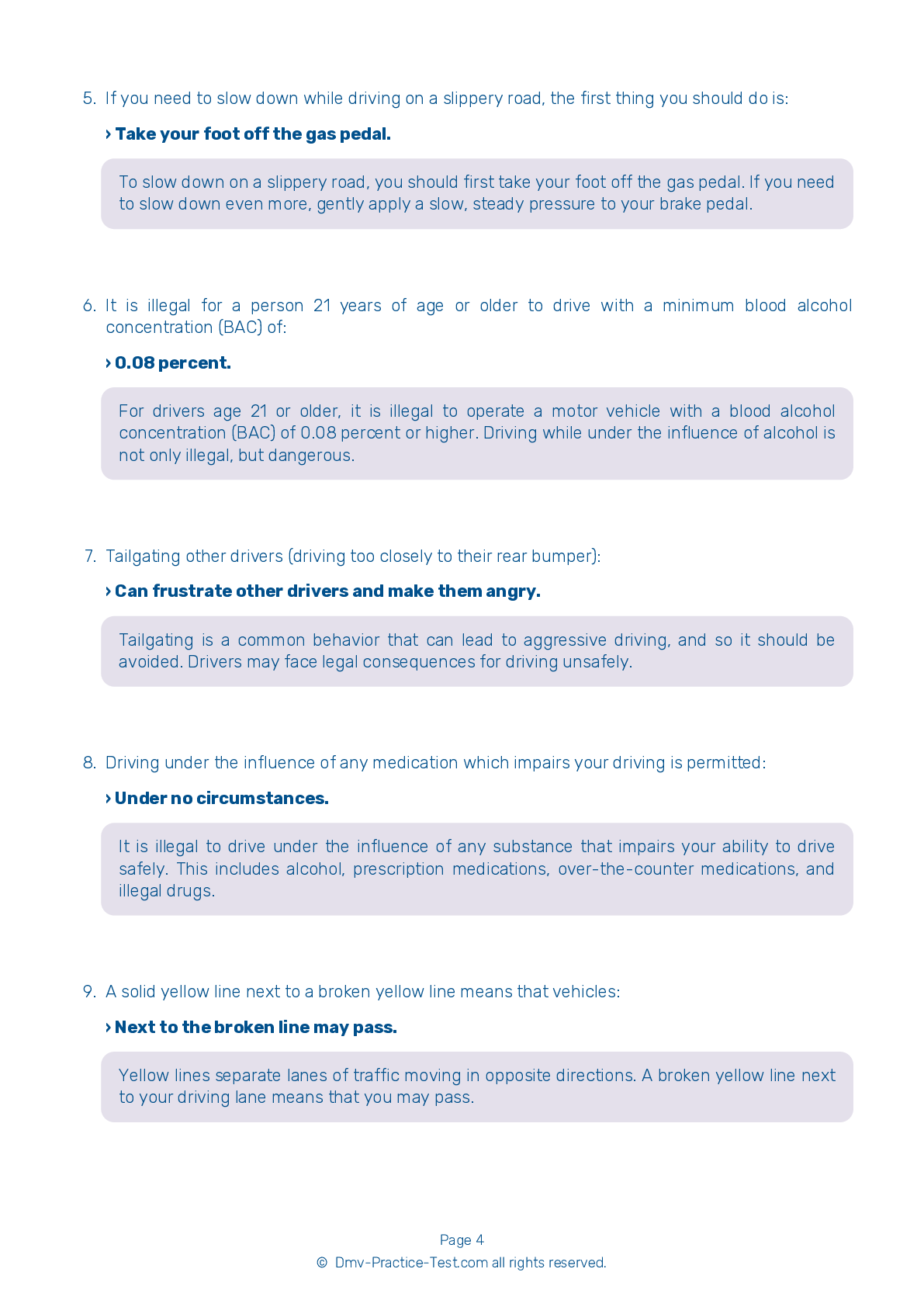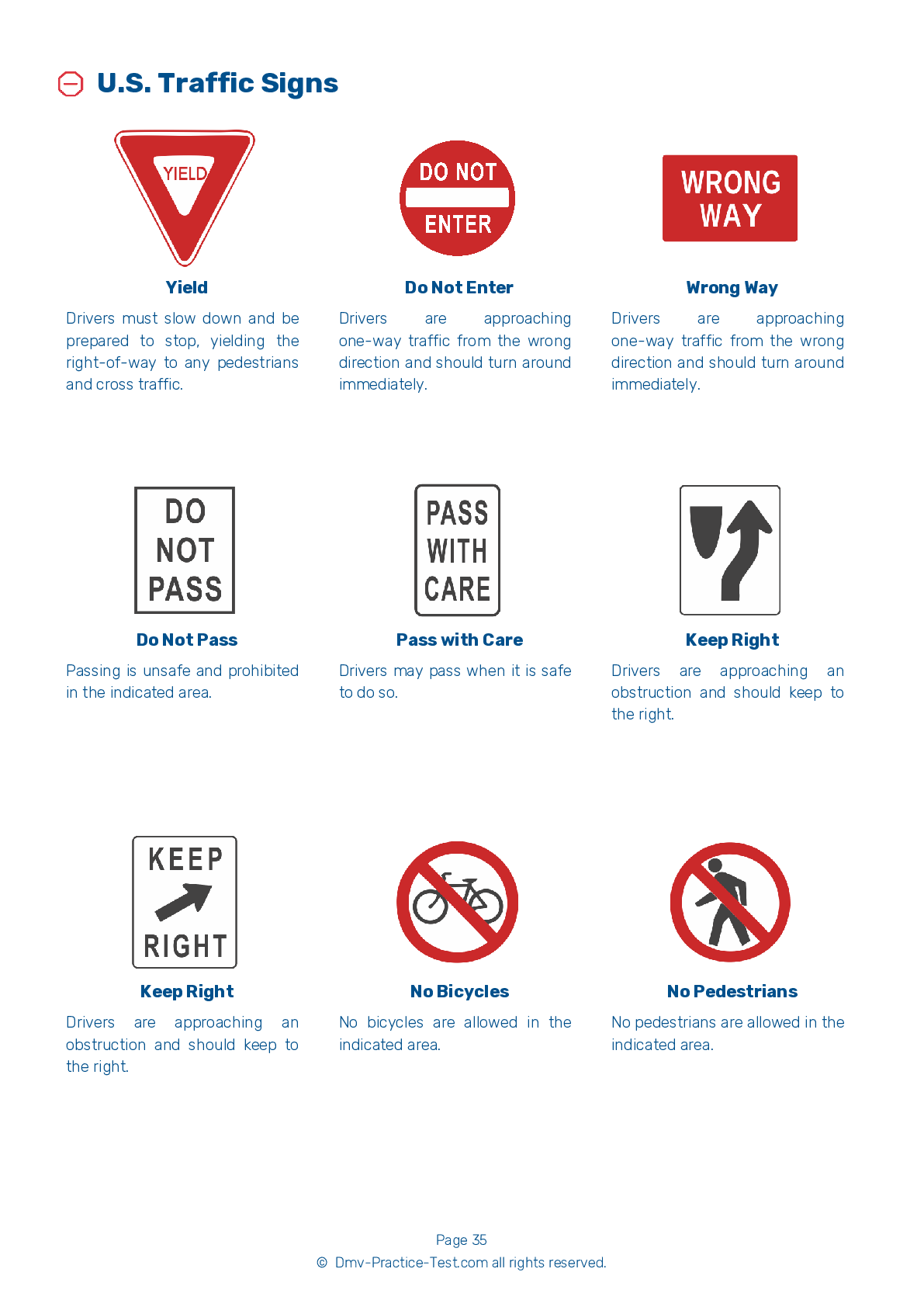FREE Vermont DMV Practice Test #6
The Vermont DMV practise examinations have been updated for January 2026. It includes questions based on the Vermont Driver Handbook's most significant traffic signals and legislation for 2026. Use actual questions that are very similar (often identical!) to the DMV driving permit test and driver's licence exam to study for the DMV driving permit test and driver's licence exam.
On the practise exam, each question gets a tip and explanation to help you remember the concepts. The written component of the official Vermont DMV test will include questions about traffic rules, traffic signs, and driving statutes, as well as knowledge from the Driver Handbook.
To obtain a passing grade, you must correctly answer 16 of the 20 questions. Use the practise exam provided by the Vermont Department of Motor Vehicles to help you prepare for your instruction permit or driver's licence.
The DMV exam is available in several languages.
Using any kind of testing assistance will result in an automatic fail, and the DMV may take additional action against your driver's licence, so stay away from it.
1 . If you see a horse and rider on the road where you are driving, you should:
Any time you encounter an animal on the roadway, drive slowly to keep from frightening it. When driving near a horse and its rider, you should slow down, move away from the horse, and avoid using your horn or accelerating in a manner that may startle the animal. Animals can be unpredictable and you should do everything you can to keep them from running into your path.
2 . Drowsy drivers:
Drowsiness can make people drive so poorly that they appear to be drunk. Opening a window, turning on the radio, or drinking coffee is not enough to make a drowsy driver alert to roadway hazards.
3 . From the center lane, which maneuver(s) can you perform?
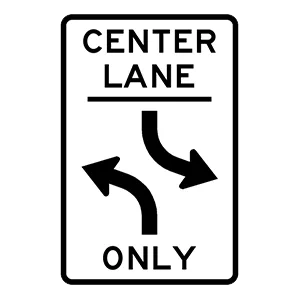
This sign indicates where a lane is reserved for the exclusive use of left-turning vehicles from either direction. Such a lane may not be used for passing or for through-traffic.
4 . Signs indicating areas of public recreation are:
Signs that are brown indicate areas of cultural and historical significance or of public recreation. They can be a helpful resource when traveling in unfamiliar locations.
5 . Motor vehicle crashes are most frequently caused by:
Motor vehicle crashes are most often caused by the actions or errors of a driver. Driving a vehicle comes with the responsibility of keeping yourself and other drivers safe.
6 . What is the appropriate action to take when approaching a railroad crossing that does not have signals to direct traffic?
When approaching an unmarked railroad crossing, slow down and be prepared to stop. Before you cross, be sure that no trains are approaching from either direction on any track. If you see or hear a train coming, stop at a safe distance from the nearest track and wait to proceed until after the train passes.
Search the best driving school in your neighbourhood
2026 Vermont | Frequently Asked Questions
1. Not checking mirrors and blind spots before changing lanes or turning.
2. Speeding or driving too slowly for the conditions or posted speed limit.
3. Not coming to a complete stop at stop signs or red lights.
4. Incorrect signalling or not signalling at all.
5. Poor parking, especially parallel parking.
Remember, practice makes perfect, so take time to hone your skills.
